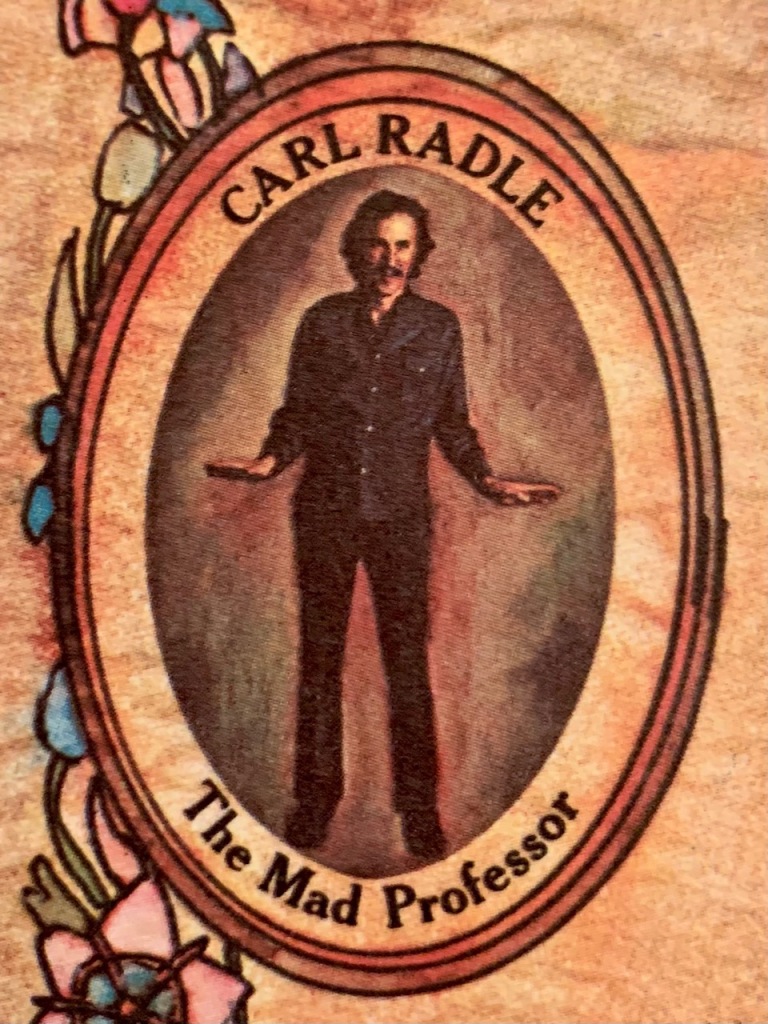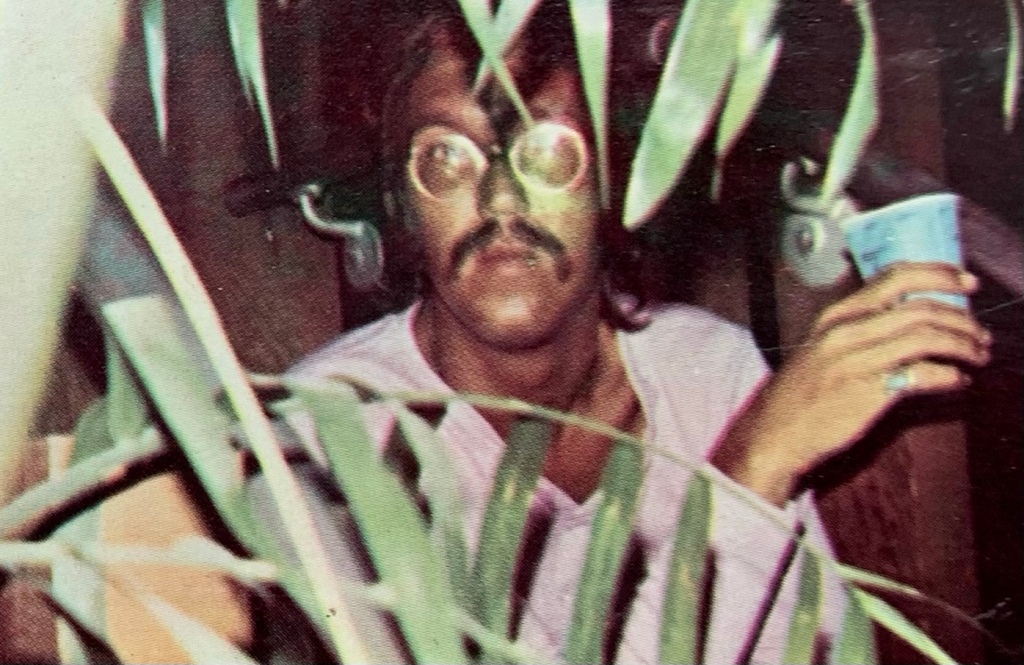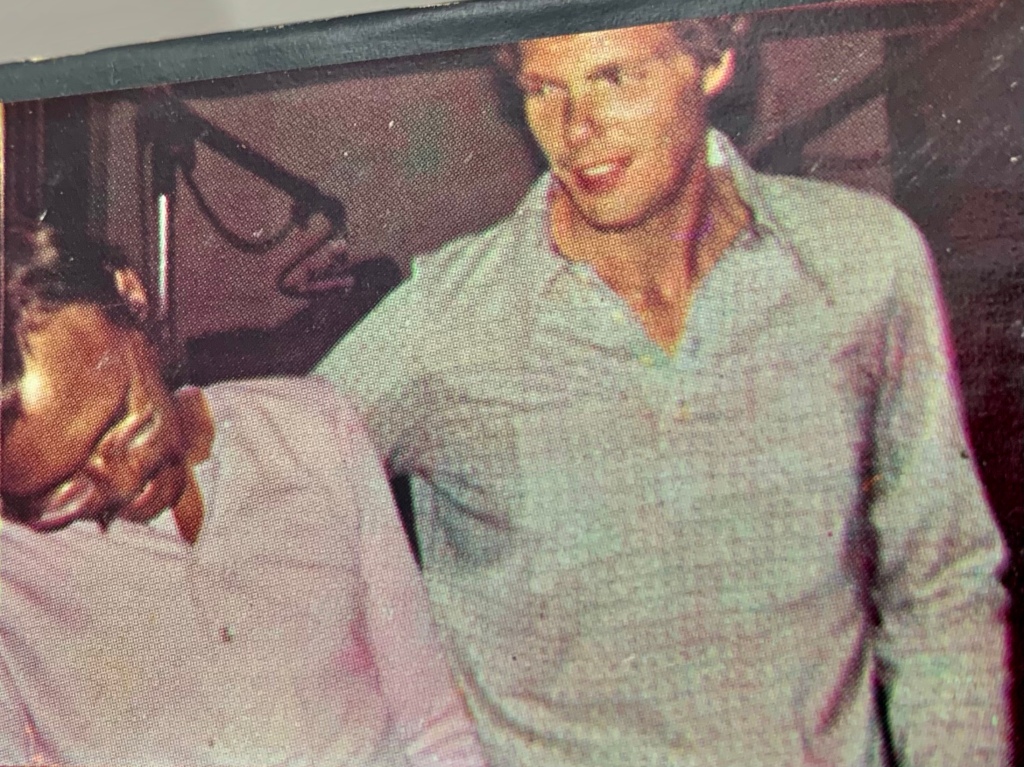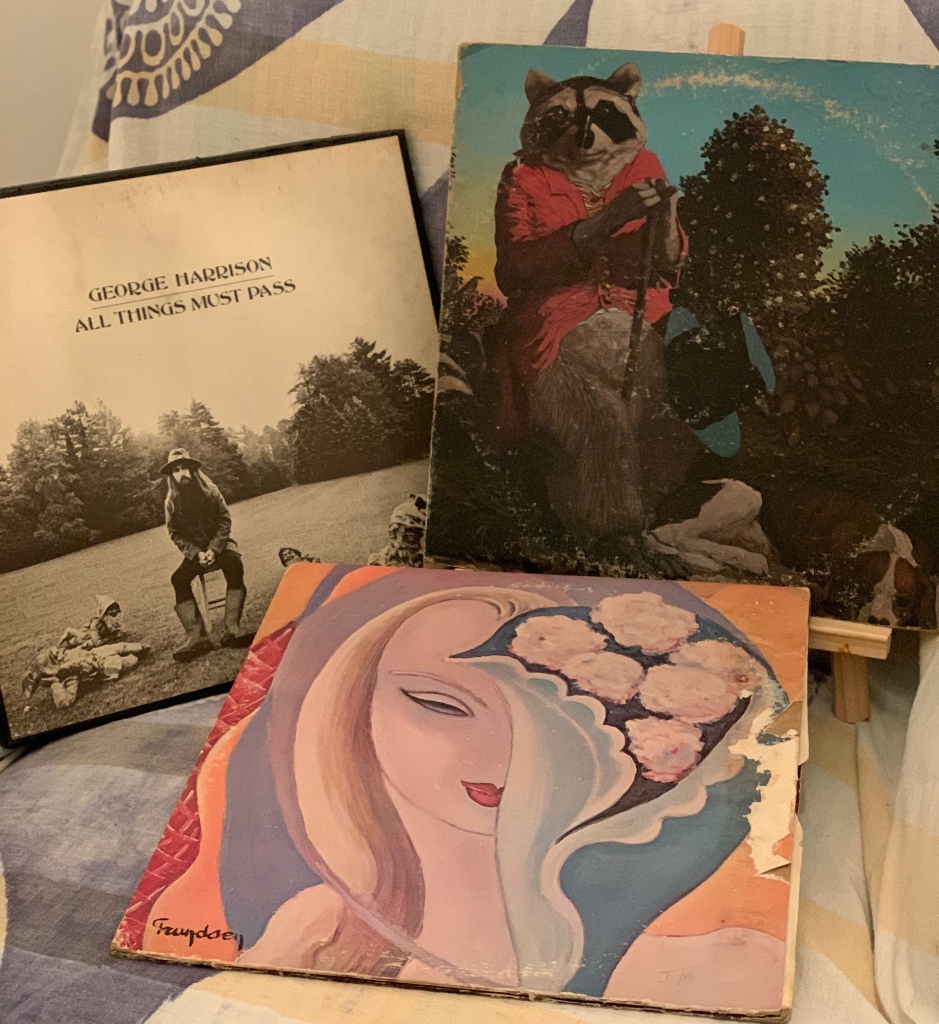This week’s playlist celebrates classic rock bassist Carl Dean Radle, America’s Paul McCartney. You might not have heard of Carl, but you’ve definitely heard his bass lines.
Carl was both a Mad Dog and a Domino AND played at both The Concert for Bangladesh and The Last Waltz. But we did give Carl the “Most Forgettable” superlative in our Last Waltz graduation, so it’s totally understandable if you’re not familiar with “The Mad Professor.”

And while he might not have been a Beatle…or been a writer…or a singer…or had boyish good looks, both Carl Radle and Paul McCartney were both born on June 18, 1942. [Plus, Carl played bass on some George Harrison tracks so he’s America’s Paul McCartney to us.]
Much like Klaus Voormann – German’s Paul McCartney – Carl’s bass playing wasn’t overwhelming or full of flair, but provided a steady groove on some of the most memorable classic rock albums of all time.

Carl was a bassist for blues legends like John Lee Hooker and Buddy Guy, but it was his connection to fellow Tulsan Leon Russell which led him being part of Joe Cocker’s Mad Dogs & Englishmen. More importantly, being part of Delaney & Bonnie’s On Tour Team introduced Carl Radle to both George Harrison and Eric Clapton, and that’s when things really took off.
Derek & The Dominos included Eric and Carl along with Bobby Whitlock on keys and Jim Gordon on drums, all who initially came together while playing on George Harrison’s All Things Must Pass.
To this day I still say the bassist Carl Radle and the drummer Jim Gordon were the most powerful rhythm section I have ever played with. They were absolutely brilliant.
Eric Clapton in 2008


Carl was a major factor in rejuvenating Eric Clapton’s career in the mid-‘70s. After the initial rejection by “Layla,” Clapton fell into a dark spiral. Clapton said Carl was “a real soul mate for me” and “could see through all my nonsense and knew what I was capable of.” According to Clapton it was Carl who finally motivated him to come to the States which eventually led to his comeback album 461 Ocean Blvd. So, that means we can also blame Carl Radle for the rise of John Travolta.

Carl continued to be part of Clapton’s studio and touring crew throughout the ’70s, but sadly passed away in May 1980 due to complications with alcohol and narcotics.
Luckily for us, Carl is featured on a trifecta of (near) perfect albums early ’70s classic rock albums: All Things Must Pass, Layla & Other Assorted Love Songs and fellow Tulsan J.J. Cale’s debut album Naturally. You’re not gonna hear a lot of Carl, but maybe that’s the beauty of a mad professor.

So happy birthday to Carl Radle, America’s Paul McCartney! And happy birthday to Paul McCartney, Britain’s Carl Radle!
Editor’s note: this week’s playlist is intended honor Carl’s upcoming birthday and celebrate his music…which happens to be closely connected to Eric Clapton. While so much of pop culture, and particularly rock ‘n’ roll, has a problematic past which we’re continually reckoning with, that’s no excuse for continuing questionable behavior in 2021. That said we absolutely do not endorse Eric Clapton’s recent collaboration with Van Morrison, “The Rebels.”
First off, two old white men who owe their entire careers to black culture should be a little more thoughtful in their word choice.
Secondly, our co-creator has an answer for the repeating chorus of “Where have all the rebels gone?”
“Well, we did spend two summers protesting an over militarized and racist police system in America. And in numerous cities around the world people were in the streets being beaten and shot with rubber bullets and pepper spray to fight a widening wealth gap and corrupt political systems.”
Maybe two rich old guys writing anti-lockdown “protest” songs should ask where their dignity has gone.


7 thoughts on “Carl Radle: America’s Paul McCartney”